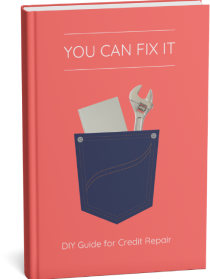Setting yourself up for financial success is incredibly important in this competitive business world. Just as the bones in your body need to be taken care of for a healthy future, similarly, your credit report is a crucial first step to help you understand how well you manage your finances and pay your bills.
Nowadays, access to financial information has become convenient. Therefore, it makes sense to request a credit report from a credit bureau to spot any inaccuracies and stay aware of your credit information. Taking charge of your credit history can help protect your financial future.
So, whether you want to rent a property, buy a house, or apply for a new credit card or a car loan, having your finances in place helps you stay on track with your past and current debt.
What is a CIBIL Report?
A CIBIL Report, or Credit Information Report (CIR), is a record of your financial standing, compiled from information provided by associated banks and financial institutions. In essence, it maintains a record of all your credit arrangements and debts.
Your CIBIL report is crucial for lenders as it helps them determine whether to grant you a loan or credit, the amount they’ll lend, and the interest rate they’ll charge.
It’s important to remember that even seemingly minor actions, such as paying phone bills or opening a new account, can impact your credit history.
What’s in your CIBIL Report?
Lenders will look at your CIBIL report to determine your creditworthiness, which is why it’s essential to know what key components are included in your CIBIL report.
Your CIBIL report will include:
- Your CIBIL score is a three-digit number that indicates to lenders how likely you are to make loans and credit payments on time. If your CIBIL score is between 300 to 900, it’s likely to be considered very good.
- Length and summary of your credit history gathered from past lenders
- Personal information, such as name, address, date of birth, gender, and other related information linked with your credit cards or loans
- Any credit details you have, such as bank and credit card accounts or loan applications
- All other account details, details that are active or inactive
- Enquiries made by lenders on your credit applications in the last 36 months to identify any potential issues or errors
Importance of a CIBIL report
Our CIBIL report is based on your credit history. When you apply for any credit or loan, lenders will assess your CIBIL report. They look at how well you manage credit and how good you are at making outstanding payments or loan EMIs. The better your CIBIL report, the more chances you have of getting a good deal from lenders.
Your CIBIL report shows a complete financial picture of your ability to manage your credit portfolio. In the context of financial institutions, lenders will not just see your credit score to evaluate your credit potential, but also the skills of smart credit risk management associated with any credit decisions. Therefore, the CIBIL report is effective in enhancing your credit profile and providing lenders with a stronger portfolio, increasing trust, and reducing the potential risks from unapproved loans.
CIBIL plays a crucial role in providing a verified credit report and collecting information from lenders to build detailed credit reports for borrowers.
How do I check my CIBIL report for free?
According to Reserve Bank of India (RBI) guidelines, all regulated credit bureaus are required to provide one free credit report every year to individuals in India.
The report will be generated online by credit bureau agencies and given to the customer after identity verification.
Upon mandatory approval for providing a free credit report, the RBI mandates a clear view of any errors and rectifications needed in the borrower’s credit history.
The easiest way to check your CIBIL report is to apply through their official website.
We recommend checking your credit report with other credit bureau agencies to be on the safe side. Though the evaluation process is different, this will ensure that all the information gathered by each agency is correct.
How to Download a Free CIBIL Report?
Avail your free CIBIL report with the following steps:
- Go to the CIBIL website.
- Click on “Get free CIBIL score & report.”
- Create an account using your details, like name, address, mobile number, and date of birth, and set up your password to proceed.
- You will be required to verify your account through a one-time Password sent to your registered mobile number.
- Once logged in, you will see your CIBIL report on your CIBIL dashboard.
- Please note that this free detailed report can be availed by first-time customers. Subsequent reports require a paid subscription.
What is needed to check your CIBIL report?
Before checking your CIBIL report, every individual should have good knowledge of the key terms and an understanding of the key features.
Let’s take a brief explanation of how one can read their own CIBIL report.
CIBIL Score: The first section will reflect your CIBIL score, which is based on your credit history and is calculated from the information in the “Accounts” and “Enquiry” sections. A good score tends to provide easier access to loans, leading to lower interest rates.
Account Information: This is the most important section to understand because it shows a detailed view of your credit card accounts and loan applications. Details such as the length of your loan, age of credit accounts, information of all associated lenders, status of your credit accounts, current balance information, credit limits, any overdue amount, and a record of payments up to 36 months.
Profile Information: This section represents
- personal details, which include name, date of birth, and gender.
- identification details, which include PAN card, passport number, Voter ID details, and driver’s license number.
- address details, which include your permanent and current address information, email address associated with your accounts.
- contact details, which include all types of mobile numbers, like office numbers and personal numbers.
- employment details, which include information about your employment (occupation and income).
Enquiry Information: This section is also important as it shows what type of enquiries have been made by lenders about your credit applications. This section demonstrates your financial behavior regarding lending credits.
Some key terms are used in a CIBIL report, which gives an accurate picture for lenders about your credit health. The following are those terms that you can find when reviewing your credit report:
Asset Classification, Actual Payment Amount, Amount Overdue, Cash Limit, Control Number, Collateral, Credit Limit, Current Balance, Days Past Due (DPD), EMI Amount, Enquiry, High Credit, Ownership, Repayment Tenure, etc.
You can find an explanation of these terms to learn their meaning.
What Type of Credit Can Impact Your Credit Score?
If you don’t have a credit account, then you must obtain one to build your credit history. It’s a good idea to open different types of credit accounts, as lenders may want to see how you manage your payments across various accounts.
There’s no doubt that credit accounts can help boost credit scores, but have you wondered if having a mix of credit accounts affects your credit report?
Well, various accounts, such as issuing a new credit card, mortgages, loans for personal use, and secured loans, can significantly impact your credit score.
Benefits of Maintaining a Good CIBIL Score
A good CIBIL score, closer to 900, represents stronger credibility and financial behavior. Whether you want to seek a loan, purchase a car, or start a new business, your CIBIL score plays a key financial indicator for lenders to determine your creditworthiness.
Your CIBIL score, payment history, outstanding loans, and other payment activities will decide whether you’re considered trustworthy or a risky borrower.
Several key factors can impact your credit score:
Payment history: Consistency in paying bills on time and managing outstanding dues.
Debt-to-credit ratio: How much credit you’re using versus the amount of credit available determines this ratio.
Length of your credit: The length of your credit accounts determines your creditworthiness stability.
Credit Enquiries: The number of enquiries lenders have made about your credit accounts.
How to Check CIBIL Score Using PAN Card?
According to the RBI mandate, you can get one free CIBIL report each year from the credit reporting agencies.
CIBIL.com is the only website authorized by the Reserve Bank of India (RBI) to issue one free credit report. You may also request your report.
To check your CIBIL report using your PAN card, you need to follow the steps below:
- Visit the official CIBIL website
- Create your account and fill in the required information
- Look for ‘ID type’ and choose PAN card (Income Tax ID number)
- Fill in your PAN card number and other requested details
- Click on ‘Accept and Continue.
- Upon acceptance, you will receive your credit report and credit score on your registered email.
How to Contact CIBIL Customer Care
If you have questions about your credit report or need guidance on getting a free credit report, call customer care at +91-22-61404300. You can get in touch with the team between 10 AM and 6 PM (Monday to Saturday).
An individual or business owner can call or write to the support team at CIBILinfo@transunion.com.
Mailing Address:
TransUnion CIBIL Limited
One World Centre, Tower 2A, 19th Floor,
Senapati Bapat Marg, Elphinstone Road,
Mumbai – 400013.
Common Myths Affecting Credit Reports and Scores
Your CIBIL report and credit score are essential when applying for loans, credit cards, and mortgages. Knowing your credit report and score helps you make informed financial decisions about managing debt and planning for future goals. Lenders use your report to determine your overall financial health and loan eligibility.
However, some misconceptions about credit scores can lead to poor credit history and financial decisions. Let’s look at some common myths and discuss the reality behind them.
Myth 1: A High Salary guarantees a high credit score
No, your salary doesn’t directly affect your credit score. While your income level is a crucial factor when it comes to getting credit, it influences your financial behavior, not your score itself.
This means your credit score is affected by your financial habits, such as consistently paying bills on time, regardless of your income level. Your credit score may drop if you have a history of late payments, high credit utilization, and other negative factors.
Lenders may look at your income to determine whether you can afford to take on loans and how likely you are to repay your debts.
Myth 2: Frequent checking of your credit score lowers it
People believe that checking your credit score frequently will lower it. This myth likely exists because people are unaware of “soft” and “hard” inquiries.
Soft inquiries occur when you check your credit score or when lenders check your credit report as a pre-approval step during a loan application. These do not impact your credit score, so you can check it as often as you like without worry.
Hard inquiries occur when you apply for credit, such as a loan or credit card. Hard inquiries can significantly impact your score, as they suggest you’re seeking a high amount of debt in a short period.
Myth 3: Closing a Credit Card is a Good Choice
Another common myth is that closing inactive credit cards will improve your credit score. However, this is wrong and has the opposite effect.
Closing your old or inactive credit cards is not a good idea, as it can lower your credit utilization ratio and potentially negatively impact your credit score.
Frequently Asked Questions
1) What is a credit report?
A credit report is a summary of your financial history. It is a document that includes your personal information, details of your credit cards, loan applications, and other credit activities. You can also get a free credit report through CIBIL.
2) What is a credit score, and why is it important?
A credit score is a three-digit number, ranging from 300 to 900, which represents your creditworthiness. It is calculated based on your financial behavior, payment history, credit management, and the length of your credit accounts. Maintaining a higher credit score leads to a greater possibility of getting credit cards and loans at lower interest rates.
3) How can I improve my credit score?
To improve your credit score, you need to make timely payments, keep your credit utilization ratio below 30%, and avoid opening multiple credit accounts quickly. Addressing any negative credit risks involved in your payment history can also improve your credit score.
4) What should I do if I find errors in my CIBIL report?
If you find any errors in your report, you can get free dispute resolution services through CIBIL.
5) What type of information is contained in your Free CIBIL Report?
Your CIBIL report may contain information including your name, address, date of birth, employment information, credit account information, inquiries made by lenders, and other public records related to your financial information.
6) Is it necessary to monitor your credit report?
Yes, it’s important to check your credit report regularly to detect any signs of fraud or theft.
7)What mistakes should be avoided to build a good credit profile?
Good credit habits are important for maintaining a good score. The mistakes you must avoid are
– Not paying bills on time
– Applying for multiple credit accounts at once
– Taking on unnecessary credit
– Not monitoring your CIBIL score and credit report regularly.






